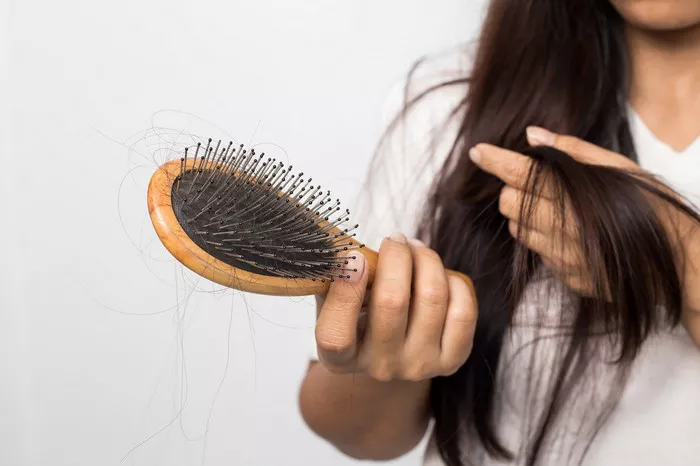Postpartum hair loss, also known as telogen effluvium, is a common phenomenon experienced by many women after childbirth. While pregnancy is often associated with luscious locks and thick, voluminous hair, the hormonal fluctuations that occur during and after pregnancy can lead to significant hair shedding. In this article, we explore the timeline of postpartum hair loss and offer insights into managing this temporary condition.
Understanding Postpartum Hair Loss:
Hormonal Changes: During pregnancy, elevated levels of estrogen prolong the growth phase of the hair cycle, resulting in thicker, fuller hair. However, after giving birth, estrogen levels plummet, triggering a shift in the hair cycle. This transition prompts more hair follicles to enter the resting (telogen) phase, leading to increased shedding.
Delayed Onset: Postpartum hair loss typically begins around three to six months after giving birth, although the exact timing can vary from woman to woman. This delay is due to the gradual decline in estrogen levels following childbirth, which takes time to affect the hair growth cycle.
Duration of Shedding: The duration of postpartum hair loss can vary, but it usually peaks around four to six months postpartum before gradually subsiding. While some women may experience mild shedding that resolves on its own, others may notice more pronounced hair loss that persists for several months.
Extent of Hair Loss: Postpartum shedding can vary in severity, ranging from mild thinning to noticeable clumps of hair loss. Factors such as genetics, hormonal fluctuations, and overall health can influence the extent of hair loss experienced.
Managing Postpartum Hair Loss:
Nutrition: Maintaining a balanced diet rich in vitamins, minerals, and protein is essential for supporting healthy hair growth. Foods high in biotin, iron, zinc, and vitamin E can promote hair strength and resilience.
Gentle Hair Care: Avoiding harsh hair treatments, excessive heat styling, and tight hairstyles can help minimize hair breakage and further damage. Opt for gentle, sulfate-free shampoos and conditioners formulated for fragile postpartum hair.
Scalp Massage: Stimulating the scalp through gentle massage can promote blood circulation and encourage hair growth. Use your fingertips to massage the scalp in circular motions for a few minutes each day.
Supplements: Some women may benefit from taking supplements specifically formulated to support postpartum hair health. Consult with a healthcare provider before starting any new supplements, especially if breastfeeding.
Seeking Professional Advice:
Consultation with a Dermatologist: If postpartum hair loss persists or is accompanied by other concerning symptoms, consider consulting with a dermatologist or healthcare provider. They can assess your hair loss pattern, rule out underlying medical conditions, and recommend appropriate treatment options.
Hair Restoration Treatments: In severe cases of postpartum hair loss, hair restoration treatments such as platelet-rich plasma (PRP) therapy or low-level laser therapy (LLLT) may be considered. These treatments can help stimulate hair follicles and promote regrowth.
Conclusion:
In conclusion, postpartum hair loss is a common occurrence experienced by many women after childbirth due to hormonal fluctuations. While it can be distressing to see increased hair shedding, especially during a time when new mothers are already adjusting to numerous changes, it’s important to remember that postpartum hair loss is typically temporary and resolves on its own. By understanding the timeline of postpartum shedding and implementing healthy hair care practices, women can navigate this transitional phase with confidence. If postpartum hair loss persists or causes significant distress, seeking advice from a healthcare provider or dermatologist can provide reassurance and guidance on managing the condition effectively. With patience and proper care, women can restore their hair to its pre-pregnancy glory and embrace the joys of motherhood with renewed confidence.

